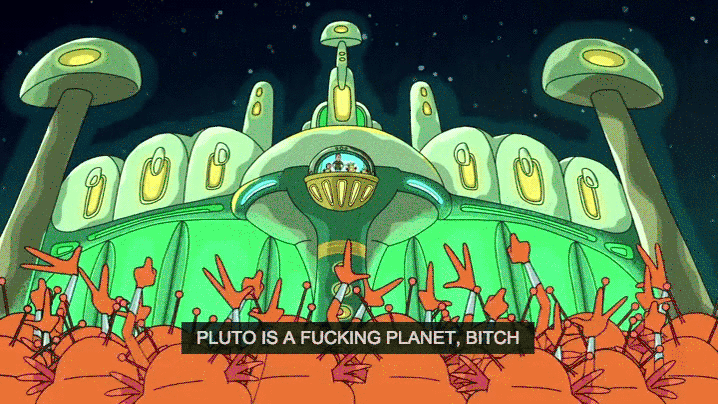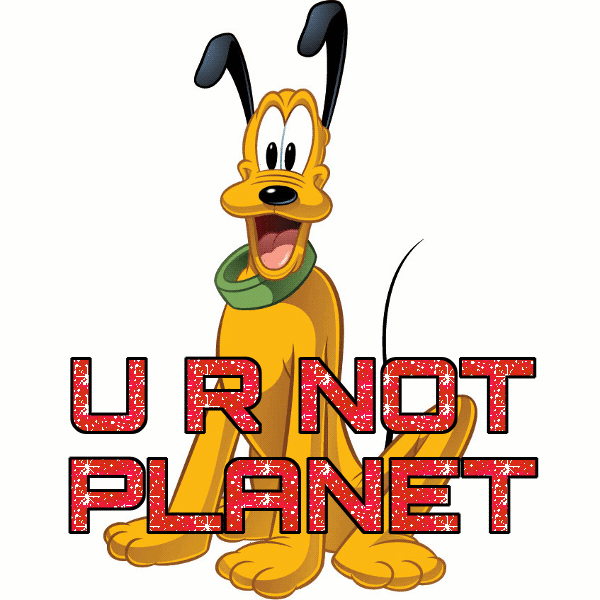- Joined
- May 18, 1997
- Messages
- 55,598
I think I am finally just going to stand my ground on this one and go with Jerry. Pluto is a planet. However, not everyone is with Jerry on this. Southwest Research Institute is suggesting that Pluto is nothing more than a comet. Jerry and I aren't buying this.
“We’ve developed what we call ‘the giant comet’ cosmochemical model of Pluto formation,” said Dr. Christopher Glein of SwRI’s Space Science and Engineering Division. The research is described in a paper published online today in Icarus. At the heart of the research is the nitrogen-rich ice in Sputnik Planitia, a large glacier that forms the left lobe of the bright Tombaugh Regio feature on Pluto’s surface. “We found an intriguing consistency between the estimated amount of nitrogen inside the glacier and the amount that would be expected if Pluto was formed by the agglomeration of roughly a billion comets or other Kuiper Belt objects similar in chemical composition to 67P, the comet explored by Rosetta.”
“We’ve developed what we call ‘the giant comet’ cosmochemical model of Pluto formation,” said Dr. Christopher Glein of SwRI’s Space Science and Engineering Division. The research is described in a paper published online today in Icarus. At the heart of the research is the nitrogen-rich ice in Sputnik Planitia, a large glacier that forms the left lobe of the bright Tombaugh Regio feature on Pluto’s surface. “We found an intriguing consistency between the estimated amount of nitrogen inside the glacier and the amount that would be expected if Pluto was formed by the agglomeration of roughly a billion comets or other Kuiper Belt objects similar in chemical composition to 67P, the comet explored by Rosetta.”
![[H]ard|Forum](/styles/hardforum/xenforo/logo_dark.png)


